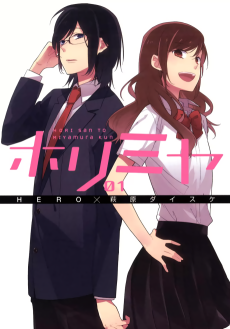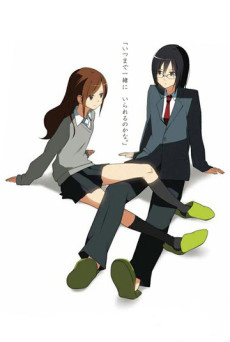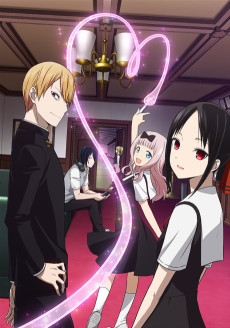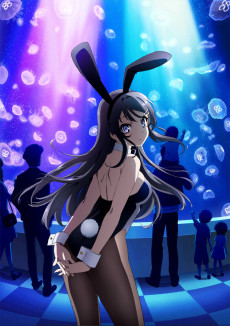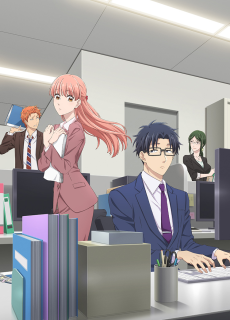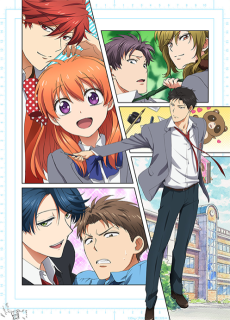HORIMIYA
STATUS
COMPLETE
EPISODES
13
RELEASE
April 4, 2021
LENGTH
24 min
DESCRIPTION
A secret life is the one thing they have in common. At school, Hori is a prim and perfect social butterfly, but the truth is she's a brash homebody. Meanwhile, under a gloomy facade, Miyamura hides a gentle heart, along with piercings and tattoos. In a chance meeting, they both reveal a side they've never shown. Could this blossom into something new?
(Source: Funimation)
CAST
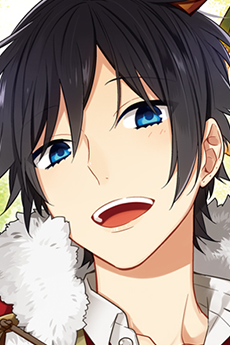
Izumi Miyamura
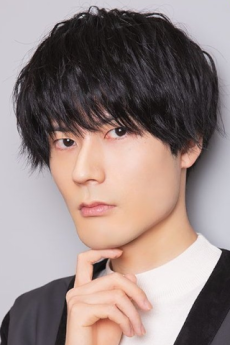
Kouki Uchiyama
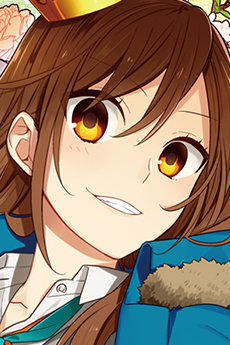
Kyouko Hori
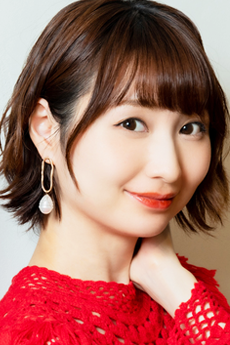
Haruka Tomatsu
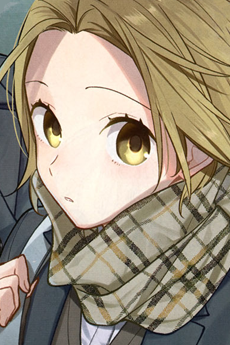
Yuki Yoshikawa
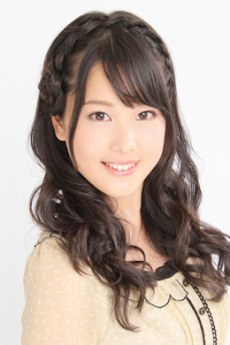
Yurie Kozakai
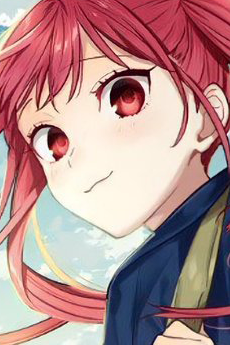
Remi Ayasaki
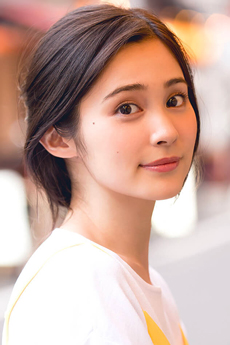
Mao Ichimichi
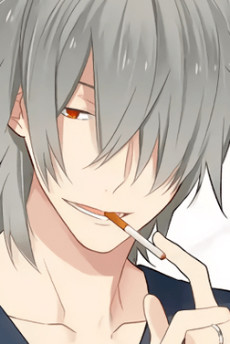
Kyousuke Hori
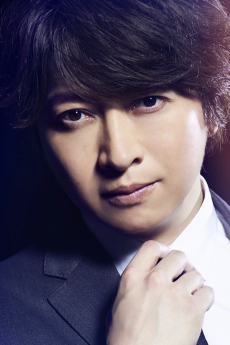
Daisuke Ono
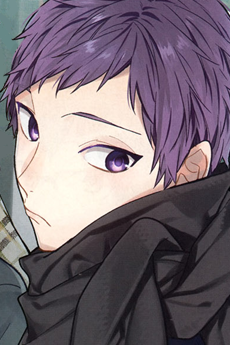
Tooru Ishikawa
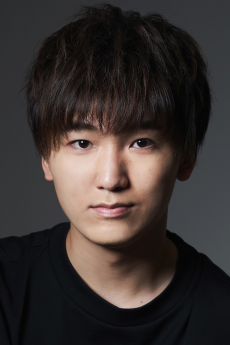
Seiichirou Yamashita
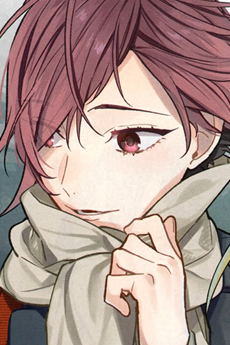
Akane Yanagi
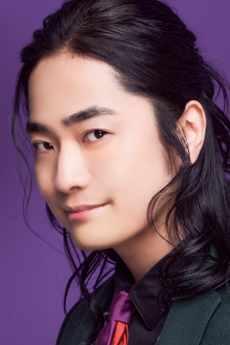
Jun Fukuyama
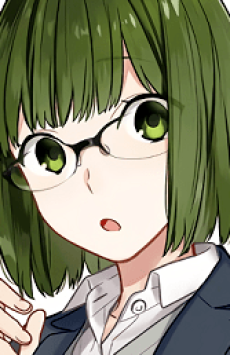
Sakura Kouno
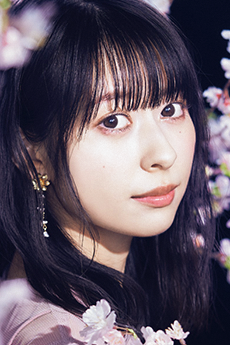
Reina Kondou
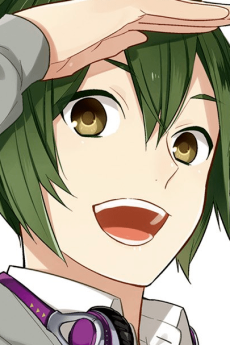
Shuu Iura
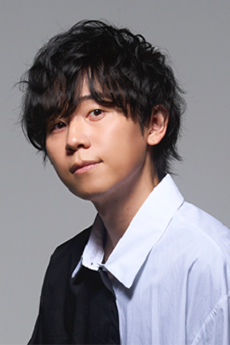
Daiki Yamashita
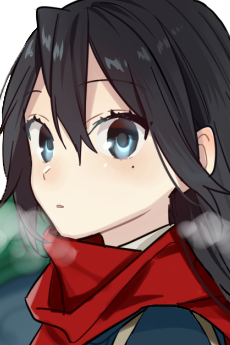
Honoka Sawada
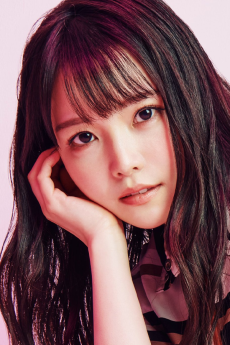
Momo Asakura
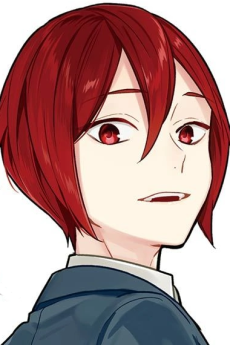
Kakeru Sengoku
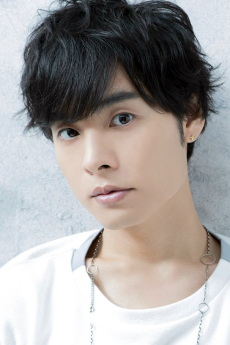
Nobuhiko Okamoto
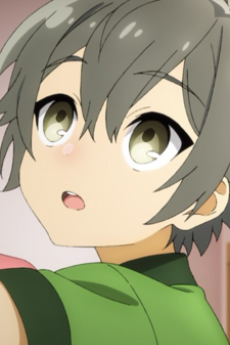
Souta Hori
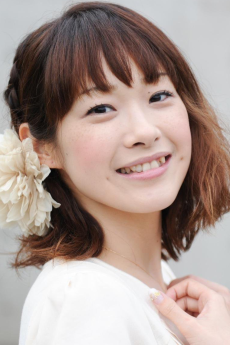
Yuka Terasaki
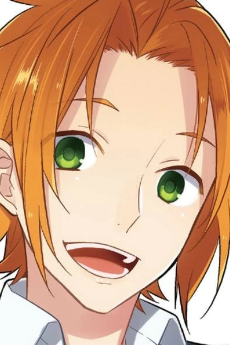
Kouichi Shindou
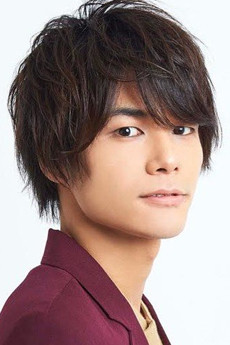
Taku Yashiro
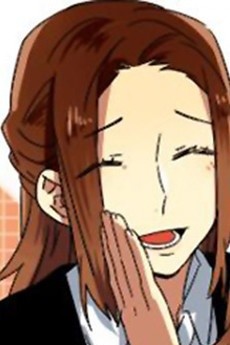
Yuriko Hori
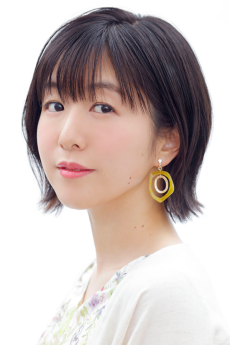
Ai Kayano
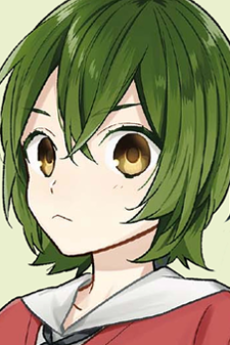
Motoko Iura
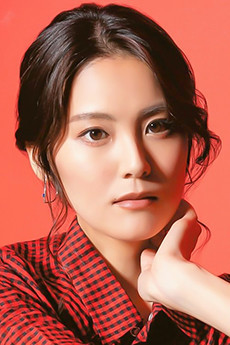
Hisako Kanemoto
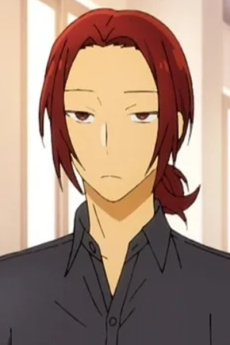
Shin Yasuda
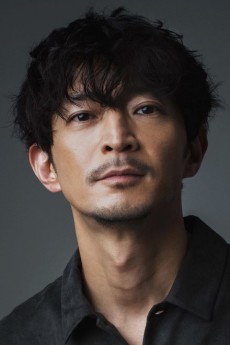
Kenjirou Tsuda
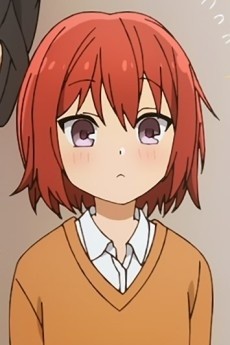
Yuuna Okuyama
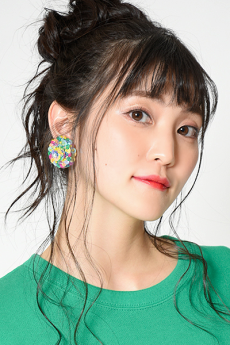
Aoi Koga
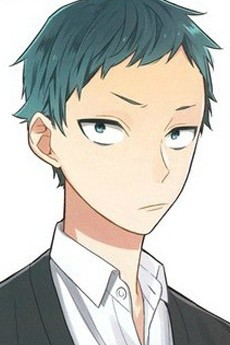
Makio Tanihara
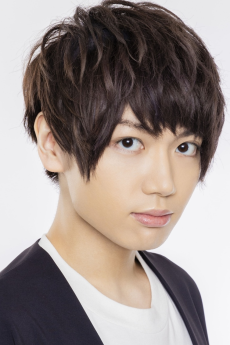
Shouya Chiba
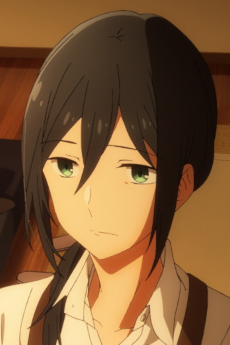
Iori Miyamura

Sayaka Oohara
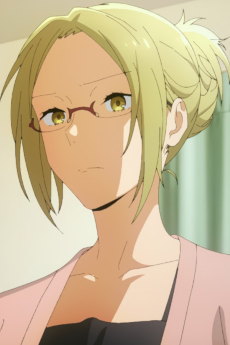
Miki Yoshikawa

Atsumi Tanezaki
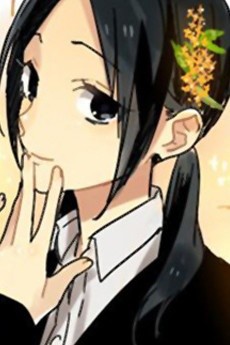
Chika Ichijou
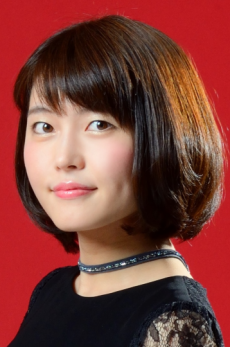
Sayaka Senbongi
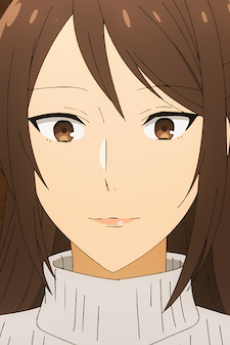
Kayo Yashiro
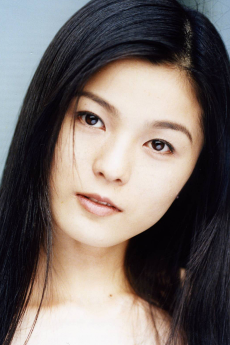
Ryouka Yuzuki
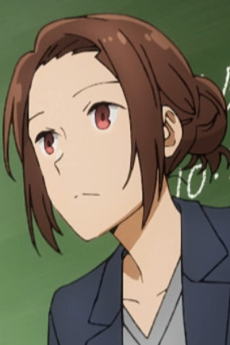
Reiko Terajima
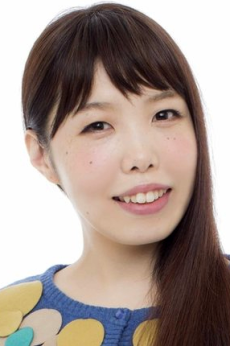
Hana Satou
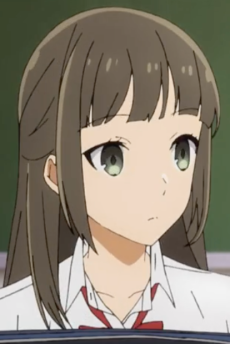
Takako Nishi
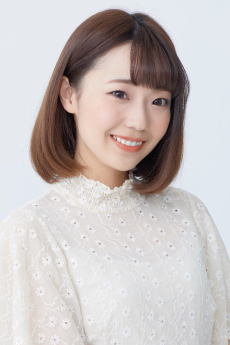
Yuuki Takada
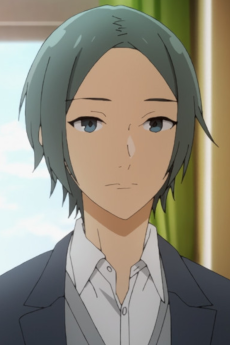
Daiki Mizouchi
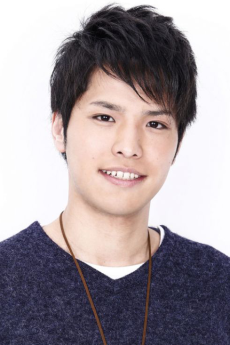
Haruki Ishiya
EPISODES
Dubbed
RELATED TO HORIMIYA
REVIEWS

gabrielz8
85/100Are you ready to accept your "true self"?Continue on AniList[ENG] (TL;DR at the end)
“I’m sure eveyone has a side of themselves they don’t want other people to see, as long as you don’t try to find it out, you may never see someone’s true self, that’s typically how it is, and, of course, it’s not like it’s any diferente for me” Interesting thought, isn't it? Funny to imagine that everyone is hiding something so important...but what about you? Are you also hiding something that you don't want other people to find out?
Before answering that question let me introduce the Anime itself, Horimiya, or Hori-san and Miyamura-kun, is a Anime produced in 2021 by CloverWorks Studios, original work by HERO, or Hiroki Adachi, and this whole premise is explored in its history in general, especially if we look more closely at its main characters, like Kyouko Hori herself.
Hori is a beautiful, friendly girl with brown eyes and a thin figure, and it is obviously that, with all these characteristics, she is very popular at school, even receiving numerous invitations to go out and have fun after school, however Hori ends up refusing all of them, whether from the boys wanting to get to know her better or even those from Yuki Yoshikawa and Tooru Ishikawa, who are her closest friends in the class, always claiming she doesn't have time and that she needs to go home early
It turns out that Hori hides a certain secret in her life, something that not even her closest friends know the truth, as her parents work a lot and are rarely around, she is practically a housewife, responsible for taking care of all the household chores, be it cooking, washing clothes and cleaning the house, and especially Souta, who is her younger brother. Not that Hori is ashamed of this, but knowing how people see her in high school, she imagines that it wouldn't be well accepted by her classmates, so she ended up choosing to hide this truth and just continues to live like this
Everything went relatively well, until the day when Souta ends up having a small accident returning home, and is rescued by a boy with a look...let's say...different, or unique, if you prefer. As a thanks for the help, Hori and Souta invite the boy to eat and drink something and, after a brief talk, he says that he never imagined that Hori took care of the house and her brother like that. Of course she's confused and shocked by this information, but everything is cleared up when he reveals that he is one of her classmantes in class 3-1, named Izumi Miyamura
Miyamura doesn't draw much attention in the classroom, either because of his appearance in general, with long hair and glasses that hide his face in some way, or even because of his personality, since, for being a quiet and isolating person from the rest of the class, his classmates regard him as someone strange, weird and even somewhat dark. But outside of school his appearance changes completely, by fixing his hairstyle, exposing his nine piercings and wearing different and unique clothes, almost becoming someone else
And, since they ended up discovering their respective secrets, that Hori is a normal and plain housewife, and that Miyamura has a somewhat extravagant appearance outside of school, now the two have something in common, helping them to get to know and get closer and closer to each other
You should already have a good idea of how the story will end up going forward, since it isn't hard to imagine the next chapters of Hori and Miyamura, but the main point of this story isn't what will happen, but how things happen. We all end up hiding our “real self” from the rest of the people, whatever the reasons for that, perhaps for fear of ending up alone, ashamed of who we really are, or even disgust with our reality, all the characters have this idea, and this is exactly where Horimiya presents its main message, which is a magic word, called “Acceptance”.
Like Miyamura himself for example, he realized that he can't change the person he is, or his body, or his personality, if people think he is dark or strange, he can't do anything to change that. He accepted his side that he always tried to hide, accepted the good and the bad of his life, accepted who he really is, and from the moment he accepted his "true self", it allowed other people to accept the real Miyamura as well, allowing him to finally find his place in the world
TL;DR
Horimiya is incredible and was successful for a number of reasons, but for me what made the story so special is exactly that, although we all have a side that we don't want anyone to discover, the more we work to accept and embrace that side, the more we will find people and places that will want to accept it too, making life more and more special
Bellow there is a video link, entitled “How Horimiya Explores the Idea of Maturity”, which better analyzes the Anime and its premise as a whole, making this review even more accurate (Please turn on the English Sub for it).
[PT-BR] (TL;DR no final)
“Tenho certeza que todo mundo tem um lado de si que não quer que as outras pessoas vejam...e se ninguém tentar descobrir ele, você pode nunca ver o verdadeiro eu de alguém...normalmente é assim que funciona e, claro, que não é diferente para mim” Pensamento interessante, não é? Engraçado imaginar que todo mundo está escondendo algo tão importante assim...mas e você? Por acaso também está escondendo algo que não quer que outras pessoas descubram?
Antes de responder essa pergunta deixe-me apresentar a obra em questão, Horimiya, ou Hori-san e Miyamura-kun, é um Anime de 2021 produzido pelos estúdios CloverWorks, obra original de HERO, ou Hiroki Adachi, e toda essa premissa é explorada em sua história no geral, em especial se analisarmos mais de perto seus personagens principais, como a própria Kyouko Hori.
Hori é uma menina linda, simpática, com belos olhos castanhos e fisionomia magra, e não é de se duvidar que, com todas essas características, que ela seja bem popular no colégio, chegando a receber inúmeros convites para sair e se divertir com o pessoal depois das aulas, porém Hori acaba recusando todos eles, seja dos meninos querendo a conhecer melhor ou até mesmo os da Yuki Yoshikawa e do Tooru Ishikawa, que são seus amigos mais próximos na sala, sempre alegando que não tem tempo e que precisa voltar cedo para casa.
Acontece que Hori esconde um certo segredo em sua vida, onde nem mesmo seus amigos mais próximos sabem da verdade, como os pais dela trabalham bastante e raramente estão por perto, ela é praticamente uma dona de casa, responsável por cuidar de todos os afazeres domésticos, seja cozinhar, lavar a roupa e limpar a casa, e especialmente do Souta, que é seu irmão mais novo. Não que Hori sente vergonha disso, mas sabendo como as pessoas a enxergam no colégio, imagina que não seria algo bem aceito pelos seus colegas, então acabou optando por esconder essa verdade e apenas segue vivendo assim.
Tudo seguia relativamente bem, até que em um belo dia, Souta acaba sofrendo um pequeno acidente ao voltar para casa, e é resgatado por um menino com uma aparência...digamos...diferente, ou única, se preferir. Como agradecimento pela ajuda, Hori e Souta convidam tal menino para comer e beber algo e, depois de uma breve conversa, o mesmo fala que nunca imaginou que Hori cuidava da casa e de seu irmão dessa maneira. Claro que ela fica confusa e chocada com essa informação, mas tudo é esclarecido quando ele revela que é um de seus colegas da sala 3-1, chamado Izumi Miyamura.
Miyamura não chama tanto a atenção na sala de aula, seja por sua aparência no geral, com cabelo cumprido e óculos que escondem de certa forma seu rosto, ou até mesmo pela sua personalidade, já que, por ser uma pessoa quieta e que se isola do resto da sala, seus colegas o consideram como alguém estranho, esquisito e até de certa forma sombrio. Mas fora do colégio sua aparência muda completamente, onde arruma seu penteado, expõe seus nove piercings e veste roupas bem diferentes, quase se tornando uma outra pessoa.
E, já que acabaram descobrindo seus respectivos segredos, que Hori é uma dona de casa normal e sem graça, e que Miyamura tem uma aparência de certa forma extravagante fora do colégio, agora os dois tem algo em comum, fazendo com que se conheçam e se aproximem cada vez mais um do outro.
Você já deve ter uma boa ideia de como a história vai acabar seguindo daqui para frente, já que não é difícil de imaginar os próximos capítulos da Hori e do Miyamura, mas o grande ponto dessa obra não é o que vai acontecer, e sim como as coisas acontecem. Todos nós acabamos escondendo o nosso “verdadeiro eu” do resto das pessoas, seja qual for as razões e motivos para isso, talvez por medo de acabar ficando sozinho, vergonha de quem realmente somos, ou até desgosto da nossa realidade, todos os personagens trabalham essa ideia, e é justamente ai que Horimiya trabalha a sua principal mensagem, que é uma palavrinha mágica, chamada “Aceitação”.
Como o próprio Miyamura por exemplo, ele percebeu que não pode mudar a pessoa que ele é, ou seu corpo, ou sua personalidade, se as pessoas acharem que ele é dark ou estranho, ele não pode fazer nada para mudar isso. Ele aceitou esse lado que sempre tentou esconder, aceitou o bom e o ruim de sua vida, aceitou quem ele é de verdade, e a partir do momento que ele aceitou seu verdadeiro “eu”, isso permitiu que outras pessoas também aceitassem o verdadeiro Miyamura, fazendo com que ele enfim encontrasse seu lugar no mundo.
TL;DR
Horimiya é incrível e fez sucesso por inúmeros motivos, mas parar mim o que tornou a obra tão especial é justamente isso, que apesar de que todos nós termos um lado que não queremos que ninguém descubra, quando mais trabalharmos para aceitar e abraçar esse lado, mais vamos descobrir pessoas e lugares que vão querer aceitar ele também, tornando a vida cada vez mais especial.
Segue o link do vídeo, intitulado de “Como Horimiya Explora a Ideia de Maturidade”, que analisa melhor a obra e sua premissa como um todo, tornando essa review ainda mais precisa.

ayukawas
75/100Horimiya, the short anime that created a lasting effect on the romance genre.Continue on AniListThere are a lot of anime that exist in the romance genre, but every once in a while, a new anime sprouts up and changes how the genre is viewed as. This generation, Horimiya is the anime that did this.
From the first episode, we already dive into the lives of the characters. Instead of lengthy character introductions that usually take around 5 episodes, we are immediately thrusted into the world of Hori Kyoko and Izumi Miyamura. Compared to other romance anime which take forever for something actually romantic to happen, Horimiya's romantic pacing was quite fast. For me, that kind of pacing is usually a hit or miss factor in anime, but this series definitely hit the jackpot with its quick pacing but correct atmosphere. I do understand that this anime has skipped many things in the manga, and it is quite unfortunate. However, the anime was still able to wrap things up in a neat bow and absolutely nail the most beautiful parts of this series that truly makes it Horimiya.
Kyoko Hori, the protagonist of the series, is a responsible woman. She's hard-working and she tries to help others. However, there is a side of her that not many people know she has. She's both a sadist and a masochist, a fact that is mentioned quite frequently in the series. Her masochism definitely added up points for the comedic aspects of the series, but she can also be quite possessive of Miyamura to an uncomfortable extent. Don't get me wrong, I love Hori. I relate to her so much, but sometimes that possessiveness of hers can be quite concerning. Nevertheless, she is a well-written character for a 12 episode series and she is loved by a lot of people in the fandom. I love how she tries to bring out the best in Miyamura, and eventually succeeds. She's beautiful, and a very well rounded character.
Izumi Miyamura, the other protagonist of the series and Hori's love interest. I love him so much. He is introverted, and has gone through isolation during his childhood, making him anti-social and quiet. As the series progresses, he starts opening himself up to Hori, and improves himself day by day. What I love about Miyamura is that he's very warm. He is caring, and is always concerned for Hori (even if he is asked to hit her). He's very sweet, and he cares for his friends a lot even if he can be quite aggressive towards them sometimes. His character growth in the series is amazing. This series truly made him shine. The way he always tries to protect Hori, and is always thankful to her for helping him get out of his shell is truly beautiful. He's an amazing senpai towards the young people who look up to him too!
Aside from these two, there are also many well-written characters in the series. I genuinely love how this anime tried to shed light to every issue with all the characters, giving everyone depth and explaining why they act the way they do. The only person I noticed who wasn't explained quite well was Akane Yanagi, which was unfortunate since he's a character I love a lot. A couple that I absolutely adored was Remi and Sengoku. Their dynamic was so sweet, and the way Sengoku tries to protect Remi even if he views himself as weak is really good, along with Remi not really needing protection but she still chooses to love Sengoku despite all this flaws. Another pair, Ishikawa and Yuki, was more of the slow burn arc of the series. The entire problem with them and Sakura wasn't too complex, but the way it was written and the way the characters decided to act was amazingly written. I feel bad for Sakura, but I am truly rooting for Yuki and Ishikawa. Aside from my personal favorites, the other characters that were talked about in this series were also amazing, from sibling issues to acceptance issues, the anime covered those topics quite well.
Now, we have the flaws. I once implied the fact that there were many characters in the series, and by many I mean a LOT of characters for a 12 episode anime. Because of this, the main couple weren't able to receive that much attention, while the minor characters have interesting arcs but it ends too quickly and it is quite abrupt. Since the arcs are kind of all over the place, you can't really get attached to the minor characters. Hori's personality gets disturbing for comedic effect too but aside from this, the comedic timing is still very good and this anime has an adorable art style. The music is quite good too if I say so myself. Just not absolutely amazing, you know? The op is catchy but that's basically it. The soundtrack in the anime itself is quite mediocre. Despite all this, This anime was able to highlight the most important moments so well, and I commend the anime creators for that. The animation quality is amazing and it is a very satisfying end.
Here comes the question: Would I recommend this anime to anyone? My answer is yes. Many parts may have been skipped in the manga, so I'd suggest reading that too, but the anime is very soft. If I were to describe this anime it would be like a small flower blooming in the road. It's not a huge impact, but it is very beautiful so you would notice it as you walk by. Instead of a big bang, the anime is a soft wind blowing against trees. This anime is relaxing, and it is very good if you want something to casually watch as you make your coffee to start your day. Overall, this anime is very sweet, and it teaches you how to love someone and why love is such a powerful force, so powerful that it can save someone. This anime made my heart throb and ache, yearning for a romance like theirs and I'm sure it will make you dream for a gentle love story like this for days.

AnimeDweeb
60/100Finding the True Side of Horimiya.Continue on AniList#"Everyone has a side they don't want others to see." 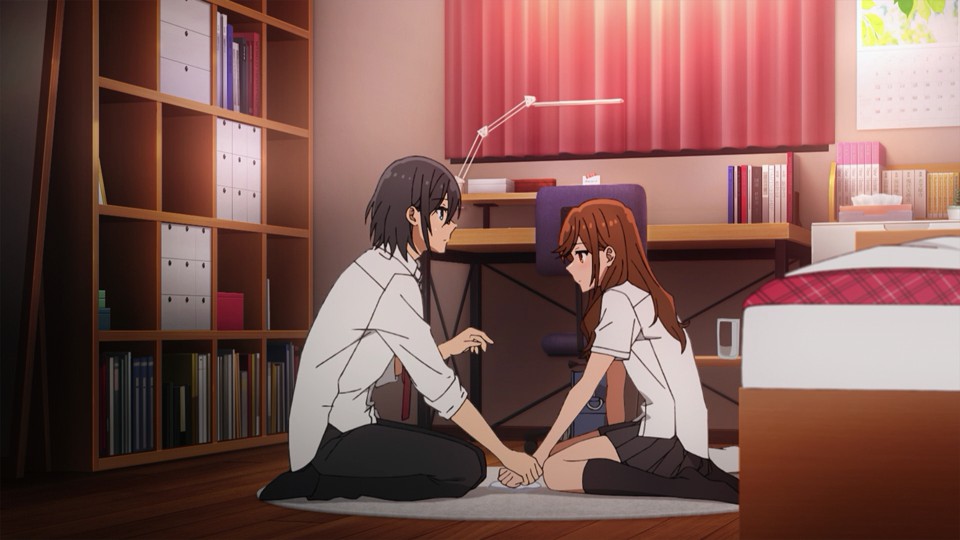
Horimiya is built around this very idea, and I'm not just talking about our titular characters - there's more to this show than meets the eye. As an anime-only normie, this is the one time I've had the pleasure of experiencing the source material before coming into the TV series. Having taken a break from the manga for about 2 years, my excited fanboy self assumed that watching the show would be a simple matter of reliving what I'd already enjoyed in the past. But in the weeks following the anime's announcement my hype went away, and in place came a realization: I had begun to see Horimiya in a different light. Despite the PV trailers hinting at a significant departure in tone, the anime series itself turned out to be a rather faithful adaptation overall. But did I really want the show to stick too closely to its source? In retrospect, the manga carries some nasty implications that I've disliked and criticized in other texts. Whether I liked it or not, knowing what happens later in the narrative recontextualizes even its early stages. Would my perceptions of the anime be swayed by my newfound perspective? If so, could I still enjoy it?
Things are different now, but am I OK with that?
Allow me to try and answer these questions for myself. For the first (and likely only) time, I'll also be looking beyond the anime, expanding the discussion to include some notes on the franchise as a whole. We're still keeping things spoiler-free, but skip ahead to my Tl;Dr if you'd like to go in blind. With all that said, let's attempt to uncover the true side of Horimiya.#All love stories start somewhere, and ours begins with a humble webcomic. Hiroki Adachi, under the pen name "HERO," self-published Hori-san to Miyamura-kun on her own website. Under panels of scruffy, crude artwork was an equally-simple, yet undeniable, charm and likeability. It would take a collaboration with artist Daisuke Hagiwara in 2011 to bring the story to a much larger audience. The Horimiya hype-train has since found legions of fans during its near-decade-long run of syndication, consistently ranked as one of the most popular romance mangas in recent years. The franchise also includes a handful of OVAs and, of course, a 2021 anime adaptation. This IP has had a rather long string of successes, growing from humble beginnings to a bestselling phenomenon. But throughout the years, Horimiya's massive appeal can be traced back its greatest strength: Horimiya feels organic.
#The truth about romance is that it has to feel *right.* 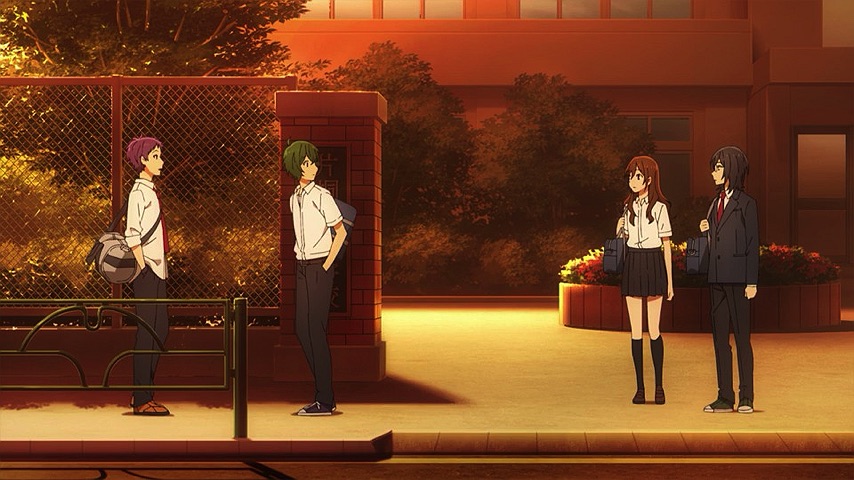
Horimiya's simple and refreshing approach to the genre achieves just that. Author HERO claimed in an interview^ that she didn't keep up with romance manga trends, instead tapping into her past life experiences for inspiration. However, I do think there's more to the story's infectious success than she's letting on. Plenty of Horimiya's writing specifically targets tropes common to romance and Japanese conventions, downplaying them to impressive effect. The biggest example of this lies in the design of its cast and premise. High school students Kyouko Hori and Izumi Miyamura are worlds apart, as far as adolescent social hierarchies go. At first glance Hori seems to be the popular girl, whereas Miyamura is often seen as the soft-spoken class nerd and otaku outcast. However, our leads don't fall neatly into those descriptions at all! Hori goes from social butterfly to hardworking homemaker as soon as the school bell rings. Meanwhile, Miyamura sheds his thick glasses for piercings, transforming his look completely. When the two alter egos meet in a chance encounter, Hori and Miyamura make a pact to be their true selves in front of each other. The lightning connection that develops as their defences come crashing down is more than just a hook for a quick, wholesome read, as this concept of personas allows the central theme of Horimiya to shine. While our masks are necessary for social interaction, it's important to let our true sides get their time in the spotlight too. Horimiya celebrates the simple, underrated joys of being perceived for how we really are. Our leads and most secondary characters demonstrate that philosophy by being spins on popular archetypes. Tropes, like the popular girl or class loner, are accompanied by character flaws, thereby facilitating storytelling rather than replacing it.
Furthermore, the conventions of romance as a genre are subverted as well, with characters often communicating openly instead of beating around the bush with dumb secrets. This enables Horimiya's signature romantic progression, which hardly feels drawn-out. That's not to say that things were constantly introspective and serious, as Horimiya set a lighthearted tone for a majority of its run. In line with the concept of things not being as they initially seem, Horimiya frequently derives comedy from its use of misunderstandings, which usually earns a good chuckle from me. The smart subversion of tropes, natural pacing and lighthearted tone make up the biggest selling point for Horimiya - it just feels right.Up till this point, my praise has been directed towards the manga. These points are what endeared me to the franchise and got me hyped for the anime. Unfortunately, it's hard to feel that this jump to the silver screen fully leveraged the strengths of its source;
#To me, the anime doesn't feel *right.* Firstly, let's talk about how the anime handles plot. Having re-read the manga alongside the weekly episodes, I felt that the adapted chapters were mostly faithful to the plot on-paper. However, the stuff that got left out hurt my experience more than I thought it would. Pacing as a whole is incredibly rapid, further accelerating progression that was already known for being fast. Horimiya's anime definitely is fast, but unnaturally so. With several arcs sandwiched into each episode, it's difficult to shake the feeling that Horimiya is rushing through its story beats, without giving enough time to breathe. Cut material lessens the believability of Hori and Miyamura's relationship, because there are a lack of encounters where that budding crush develops. Now, I'm not saying that the cut material is all that eventful from a plot perspective; probably the only "big" occurrence skipped in the first manga arc was a Kyoto school trip, which only lasted for a chapter. It's a tiny exclusion in the grand scheme of things, but my main gripe is that these exclusions stack. As a result their need for each other isn't very convincing, and their feelings toward each other can't help but come out of left field. This results in the anime effectively reaching its climax as early as Episode 5, which is particularly problematic for reasons we'll discuss later. Another big repercussion of the anime's pacing choices is the departure in tone. Jokes and lighthearted sequences are less frequent in the anime, in favor of more serious character beats. A once even contrast between lighthearted comedy and introspection becomes skewed towards the character stuff, which are still compressed even further. During my time with the show, I always felt like I was watching a clone of another episodic romcom, Tsurezure Children. This isn't a bad outcome per se, but means that the end product reveals a different side to the Horimiya I had grown attached to.
#The *Horimiya* anime struggles to capture the spirit of its source. 
Scenes feel off-kilter, as if the show seems unsure of what tone it intends to set. The manga was always comfortable sticking to more traditional over-the-top reactions with its comedy. However, the anime's focus on realistic line delivery means that most secondary characters' personalities take a backseat for more-muted dialogue. Sadly, this balance between the multi-faceted nature of our cast's personalities and realism appears to have been too far out of the show's reach. Out of all the VAs, only Miyamura's is really able to bring this versatility on full display, expressing a variety of tones to match each scene. Everyone else's voice acting usually defaults to a rather "samey" delivery throughout. Ironically, this makes the anime's comedy less animated than its still counterpart, and the show's inconsistent timing doesn't help matters. At times, individual shots are dragged on for just a second too long, while others break continuity as the storyboard eagerly charges through to the next arc. Sound design is also rather grating, especially in the early episodes. A scene can be awkwardly silent due to the absence of backing tracks, while the exact same setup later in the season can be completely drowned out by techno beats that don't quite match the lowkey conversation on-screen. A couple of instances sees several characters incomprehensibly talking over each other in poorly mixed fashion. Look, I really hate to be this pedantic on a technical front, and am usually pretty lenient on these aspects. But as I mentioned earlier, small individual infractions can build up over the course of a series' run. These consistent issues are pretty negligible on their own, but help paint a bigger picture of why a romcom is failing to be funny, and how its overall tone feels so flimsy.
#Despite my criticisms, I still enjoyed this adaptation quite a fair amount. 
As an indirect response to the somewhat-shoddy OVA adaptations, Cloverworks came in clutch with some gorgeous visuals. If more SOLs looked nearly as good as the anime, I'd be way more of a SOL fan than I already am! The visual direction manages to make rather inventive additions to the manga's templates, enhancing the overall look of the show through shot composition and minor tweaks. The show still retains plenty of its charm and heart, and some character moments do hit hard in spite of a lack of buildup. Several scenes really took me back to my first few encounters with the story, serving as nice throwbacks. However, these reminders did come with their caveats.
#*Horimiya* always teetered on a delicate balance. 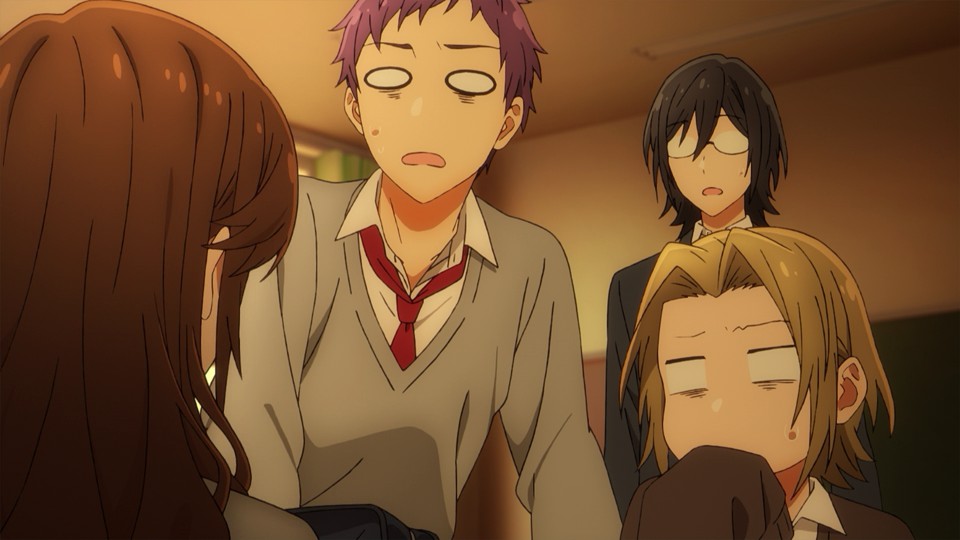
Its dose of comedy and measured romantic progression cemented the manga as one of my favorite reads, with a balance that I've grown to appreciate much more in wake of the anime. The first glaring issue with Horimiya's story is that there's a lot of filler. A lot of the main arc is wrapped up within the first 30-40 chapters, which I thoroughly enjoyed on my recent re-read. Not only did the anime's take on things feel rushed, but also dampened my spirits for the season's second half. The anime thankfully handled things much better than my expectations, but the lack of real weight in Horimiya's later arcs is a problem persistent in the source as well. Another weak spot is the dicey thematic implications of "embracing your true side." Horimiya really values this theme, but can take it to rather controversial extremes. Shockingly, we don't need to look much further than the main couple to demonstrate this point. A couple of episodes are dedicated to Hori and Miyamura working through "gap-moe," a scenario where characters act in contrast with their outward appearance, and closely tied to gender (i.e. boys acting like girls and vice versa.) To keep things brief, the show dips its feet into mild sadism, and constantly reinforces the idea that it's not consensual. This is where Horimiya's line between jokes and reality really begin to blur. Making matters worse, violence is constantly played off as a joke, and it gets rather tiring to see characters getting their knuckles bruised over mild disputes. Perhaps it's all due to the manga being based off dated material that was written as early as 2007, but it's problematic nonetheless.
#**Tl;Dr**: 
Horimiya is more than it appears, for better or for worse. A rushed anime adaptation and inconsistent execution fail to capture the spirit of a manga series I thoroughly enjoyed. Thankfully, a lot of the heart and charm of the franchise still makes its way into the finished product, as do some of the source's more notorious flaws. Horimiya still manages to make a strong impression, with good overall production values and standout sequences. Still, the manga is a significantly different experience, and well-worth your time if you enjoyed the anime. 6/10~
Can't bring myself to end things like that, so allow me to leave this franchise on a more positive note. Here goes:
#**CLOSING THOUGHTS**: Coming back to the quote that opened this review, let's discuss the franchise as a whole. It's a bit of an odd comparison, but I liken my experience with this story to that of a developing relationship. Early stages of infatuation are when love is at its most picturesque, and I was well in love with Horimiya. Taking cues from Miyamura and Hori's secret selves, Horimiya is a series that conceals its dicey implications with heartwarming moments and lighthearted comedy. At first glance, this seemingly harmless show could do no wrong. But now, the smoke has lifted, and mirrors smashed. I still have love for this show, but it means something different to me now.
With all these flaws presented on the table, I have to ask myself, "Am I OK with that?"And I think the answer, for now, is yes. For better or for worse, Horimiya is unabashedly a celebration of the Weird. Ichirou Watabe is a background character who takes pictures of Hori's beau, saving them in the aptly-titled "Miyamura Folder." And let's not forget that Class 1's homeroom teacher openly admits to being a pervert who fetishises the same underage girls he's teaching. On their own, those characters are obviously messed up. But for every Watabe, Yasuda, or even Hori; there's a Miyamura, a Yuki, a Sakura, and plenty others. Yes, there are parts I'm going to disagree with; gone are the days where I can ignore some of the more "yikes" aspects of Hori's behavior. But this story has certainly brightened up my day with more good than bad, and I'm still very proud of the legacy this franchise has lovingly left behind.
As of March 17th, 2021, Horimiya's manga drew to a close. I'm so grateful to have loved this show - with both the good sides and the bad. Thank you.
#STRAY THOUGHTS (**SPOILERS**): - ^Here's the link to the interview (I could only find it in a foreign language though, so run it through a translator if you can:)
- I have another link which may interest those who agree with my assessment of the source material's flaws regarding the source material. Apparently Horimiya only gets darker in the webcomics, with material that's probably best left on HERO's website. Most of this stuff hasn't been translated, and so I can't confirm the validity of these points. For starters, the infamous Chapter 37 is, um, more detailed (if you know, you know.) On a more sobering note, the webcomic doubles-down on its "true side" theme, with a backstory for Hori that completely changes the way you'd perceive the character. Read on if you dare…
- Hol up, we're not quite done with Hori just yet. If you've been keeping up with Horimiya discourse lately, you'd likely be aware of the heated accusations surrounding her alleged homophobia. I'm not gonna get too specific here, as I do believe the joke speaks for itself. Thanks again, Twitter Mob, we can always count on you to take things out of context.
- Speaking of Chapter 37, I was kinda hoping they'd adapt the Love Mark, hehehe.
- Commander Erwin Smith as Kyosuke was a casting choice I never knew I needed. SUSUME!
- The anime was on-track to pulling the biggest meta diss by sidelining Iura for the entire season. Sadly, he did get his arcs adapted in Ep 11, such a wasted opportunity. As for why the sudden surge of Iura content, it only felt more jarring in the manga, as he was literally a background character up till that point. My guess was that he actually placed high in an official fan-favorite character poll, with results released around Chapter 80. It's absolutely no coincidence that Iura sketches came in droves following that point.
- That OP is blissful. Synths fresh off that new Weeknd record make for a fantastic vibe. Plus, series director Masashi Ishihama, who has a good rep for making banger OPs, outdoes himself in directing Horimiya's. The visual content has barely anything to do with the show, but I grew to appreciate how he incorporates the imagery of squares and subtly directs your eyes in a smooth motion. Mad props, this is my favorite OP of Winter.
- BEST GIRL: Something about Yuki's sweater sleeves makes her a bajillion times cuter than she has any right to be.

- And finally:
>He learned the sorrowful feel of parting in the words "See you tomorrow."
OK, that was quite a ride! Tried my hand at really comparing the two forms of Horimiya side-by-side, it proved to be a bit more challenging than expected. If you happen to like my verbose rants, feel free to check out my other reviews for seasons past and present. I also frequently post writeups under my list updates, so definitely take a peek if you'd like to see me mald over anime as they hit the airwaves. Peace~
SIMILAR ANIMES YOU MAY LIKE
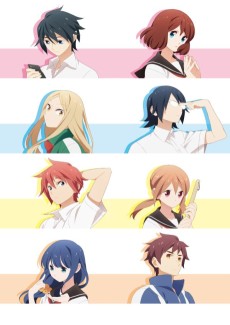 TV SHORT ComedyTsurezure Children
TV SHORT ComedyTsurezure Children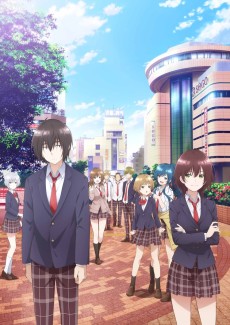 ANIME ComedyJaku-Chara Tomozaki-kun
ANIME ComedyJaku-Chara Tomozaki-kun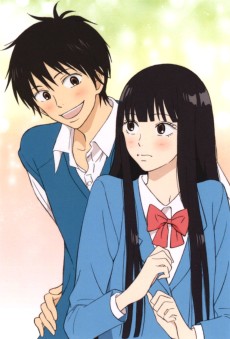 ANIME ComedyKimi ni Todoke
ANIME ComedyKimi ni Todoke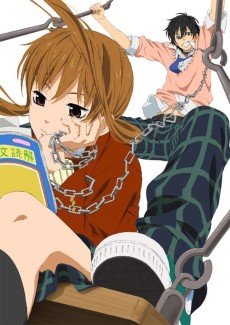 ANIME ComedyTonari no Kaibutsu-kun
ANIME ComedyTonari no Kaibutsu-kun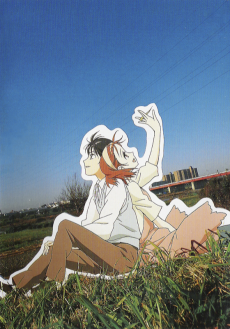 ANIME ComedyKareshi Kanojo no Jijou
ANIME ComedyKareshi Kanojo no Jijou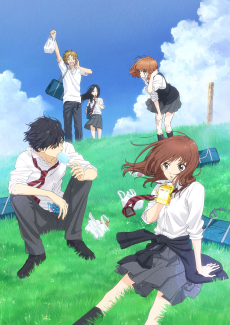 ANIME DramaAo Haru Ride
ANIME DramaAo Haru Ride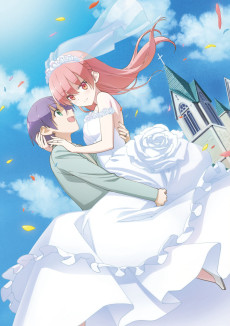 ANIME ComedyTonikaku Kawaii
ANIME ComedyTonikaku Kawaii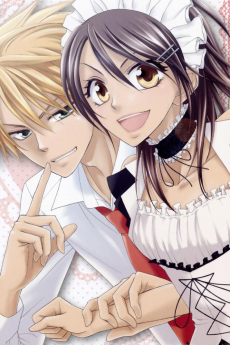 ANIME ComedyKaichou wa Maid-sama!
ANIME ComedyKaichou wa Maid-sama!
SCORE
- (4.05/5)
TRAILER
MORE INFO
Ended inApril 4, 2021
Main Studio CloverWorks
Trending Level 7
Favorited by 22,904 Users
Hashtag #ホリミヤ

